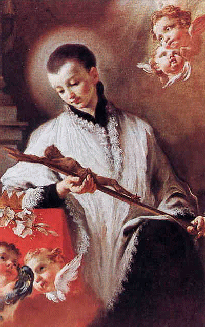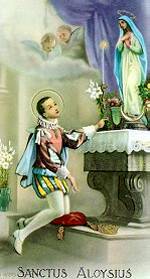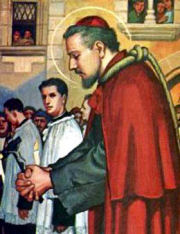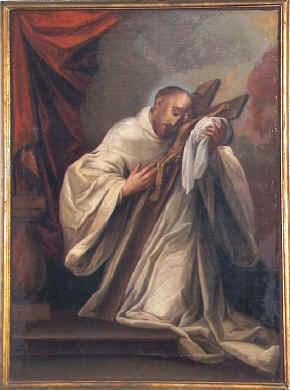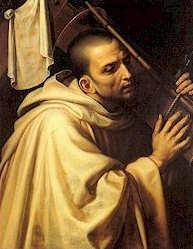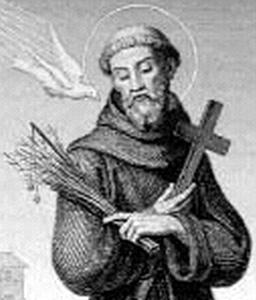
Peter Claver was born at Verdu, Catalonia in Spain and was the son of a farmer. At a very young age he decided he wanted to join the Society of Jesus, the Jesuits, and be a priest.
At the age of 20, while he was still studying at the University of Barcelona to become a Jesuit, he felt a great desire to go to South America as a missionary. He was sent to the seaport of Cartagena where great shiploads of African slaves were brought to be sold.
At the sight of those poor people all crowded together, sick and suffering, Peter felt great pity. He made up his mind to help them and bring them to Jesus.
As soon as a shipload arrived, he would go among the hundreds of sick slaves and gave them food and medicine. He baptized the dying and the little babies. He nursed the ill. It was hard work in terrible heat.
One man who went once with St. Peter to help these people found he could not face the heart-breaking sight again. Yet Peter did it for forty years. He baptized about three hundred thousand people. He was there when the ships came in to care for and love those who were treated so cruelly.
Although the slave owners tried to stop Father Claver, he taught the faith to the slaves anyway. It was slow work that could often be disappointing. Many people found fault with him, saying it was all a waste of time.
They thought the slaves would never keep the faith. But he was patient and he trusted that God would bless his people. The priest never stopped asking the slave owners to take care of the souls of their slaves and to be better Christians themselves.
During the last four years of his life, Father Claver was so sick that he had to stay in his room, he could not even celebrate Mass. Most people forgot about him, but he never complained.
When he died on September 8, 1654, it was like the whole city woke up. They realized that they had lost a saint. From then on he was never forgotten again and was called the Slave of Slaves.

